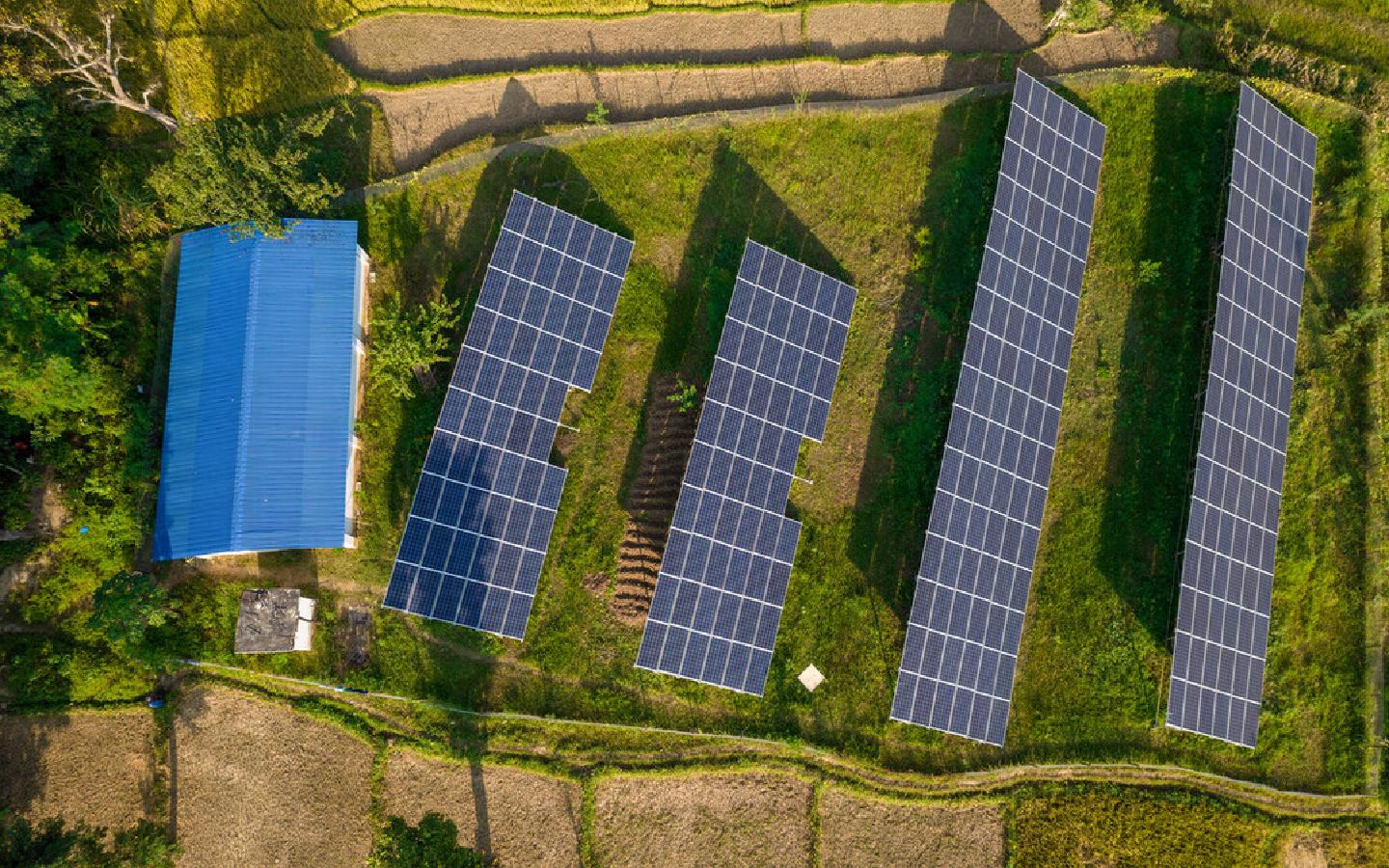Economic development is impossible without consuming energy. Large-scale sustainable energy alternatives have, therefore, become indispensable. With cofinancing from the Clean Energy Fund and Japan, a project is helping South Asian countries prepare for the large-scale deployment of solar power systems to reduce dependence on climate-harmful energy sources like coal and fossil fuels.
Fueling Economic Development
The downside to economic development is intensive energy consumption. Powering businesses, industries, homes, and hospitals is critical. However, society’s dependence on coal and fossil fuels is also responsible for three-quarters of greenhouse gas emissions, now causing changes in the Earth’s climate patterns.
The solar radiation on Earth can fuel global energy consumption by a factor of more than 5,000. This means the amount of sunlight that strikes the Earth’s surface in an hour and a half is enough to meet the world’s energy consumption for an entire year.
In the context of sustainable development and climate change, scaling up solar energy investments is one of the best options for distributing resources in energy-poor countries.
Solar energy is also the most widely distributed resource and is readily available for a broad spectrum of energy end-uses and electricity generation. Solar technologies are mainly modular and can be deployed rapidly due to their efficient manufacturing processes, which capitalize on economies of scale.
As manufacturing capacity increases, unit costs decline, and end-user affordability is improved, creating a virtuous cycle of deployment and development.
However, there are many barriers to the development of solar energy. In the case of utility-scale solar projects, for instance, these barriers include the lack of a promising pipeline of projects, inadequate financing and financial instruments, and limited sharing of knowledge and best practices. Developing member countries also face regulatory and capacity constraints when promoting large-scale solar projects.
Renewables as the Sustainable Option
In 2019, ADB approved a technical assistance focusing on deploying solar systems at scale in South Asia. With cofinancing from the Clean Energy Fund under the Clean Energy Financing Partnership Facility and High-Level Technology Fund, the project was a fundamental tool in implementing the partnership between ADB and the International Solar Alliance (ISA).
ADB and ISA’s cooperation agreement was signed in 2018, covering three areas of support: development of a project pipeline, identification of financing instruments to support the scaling up of solar energy investments, and development of knowledge management and capacity.
The partnership will help expand ADB’s clean energy financing and contribute to meeting climate change financing targets while assisting developing member countries in meeting their nationally determined contributions under the Paris Climate Agreement.
ISA’s mission is consistent with ADB’s, including creating new financing instruments and facilities to mobilize investments promoting solar energy systems.
“The project is initially focusing on Bangladesh, Bhutan, India, Maldives, Nepal, and Sri Lanka. ADB and ISA will tailor capacity building and policy advice to support the identification of investment opportunities (“learning by doing”)," said Jiwan Acharya, project officer.
Setting the Stage for Large-Scale Deployment
When the project is concluded, the share of solar power in South Asia’s energy sources will have increased.
To achieve this, the project is developing a pipeline of solar projects. Consistent with the International Solar Alliance’s objective of mobilizing $1 trillion worth of investments in solar energy, the technical assistance (TA) will help identify and create a pipeline of solar energy projects, including electricity generation, irrigation, mini-grids, and other end-use applications. This includes conducting grid impact assessments to determine the need for transmission capacity upgrades, substation augmentation, and other grid infrastructure upgrades. Also, similar assessments should be carried out for other large-scale solar end-use investments.
Additionally, financing instruments for solar deployment are also being identified. The project understands that abundant financial resources worldwide are potentially available but that the perceived risks of solar projects still need to be mitigated. Therefore, the TA is exploring options for innovative financing at scale, such as common risk mitigation mechanisms (CRMM) and global funds. ADB is identifying entry points to the CRMM and evaluating options such as direct equity investments, green bonds, cofinancing from specialized funds, other development partners, and commercial sources for investment.
The TA also supports the International Solar Alliance in facilitating countries’ access to cofinancing options, such as the Green Climate Fund and Climate Investment Fund.
Finally, to promote sustainable and widespread use, the project is working on improved knowledge management, adopting a “learning by doing” approach for documenting best practices for gender mainstreaming in solar energy deployment. Social media and websites will be the primary modes of knowledge sharing. The TA will also promote regional cooperation and integration through knowledge sharing.
"The project is initially focusing on Bangladesh, Bhutan, India, Maldives, Nepal, and Sri Lanka. ADB and ISA will tailor capacity building and policy advice to support the identification of investment opportunities (“learning by doing”)."
~ Jiwan Acharya, ADB principal energy specialist
Share

